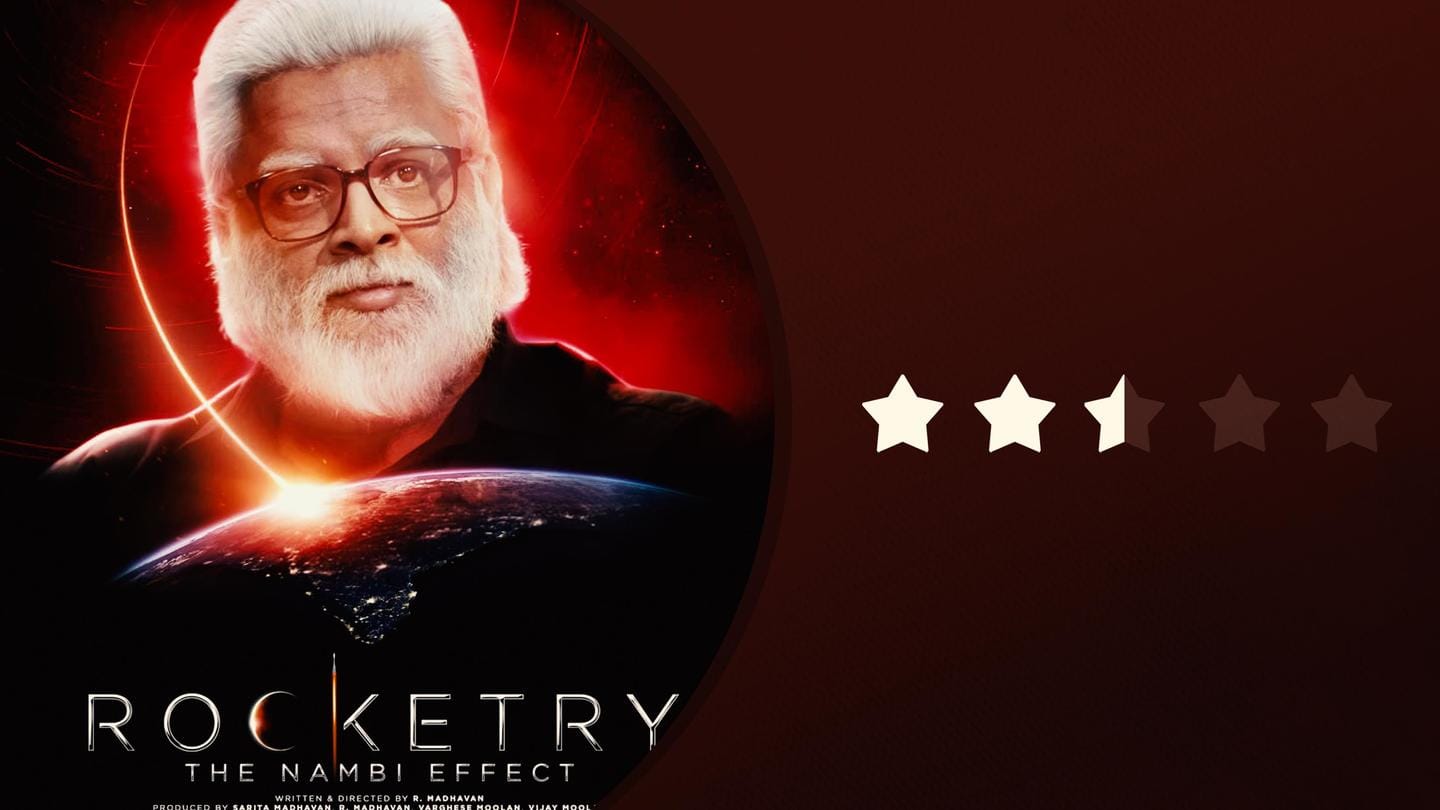
'Rocketry' review: R Madhavan is exceptional; sadly, the film isn't
What's the story
R Madhavan's magnum opus Rocketry: The Nambi Effect was released in theaters on Friday. Written, directed, and produced by Madhavan, this one-man show is well-intentioned and certainly deserves praise for highlighting scientist Nambi Narayanan's story. However, it fails to rise up to its potential, feeling rushed and patchy. Ultimately, Madhavan soars extremely high but the film does so only partly. Here's our review.
Plot
'Rocketry' covers multiple chapters of Narayanan's life
Rocketry chronicles ex-ISRO scientist Narayanan's life who developed the breakthrough Vikas engine that launched India's first PSLV. He had a fall from grace when he was falsely accused in an espionage case and hounded for "selling India's Rocketry secrets" to Pakistan. In 1998, he was finally freed of all allegations that branded him a traitor. He was felicitated with the Padma Bhushan in 2019.
What works?
Police brutality, media trial get focus
Rocketry brings to the fore the life of a maverick scientist who refused a high-paying NASA job to focus on ISRO instead. It also covers his time at Princeton University and tutelage under Vikram Sarabhai. In the second half, it underlines police brutality, media trials, and the public's fickle-minded nature that relegate its "heroes" with as much force and passion as it elevates them.
Personal
Steers clear of becoming jingoistic
Biopics often run the risk of being perceived over-the-top, but Rocketry steers quite clear of chest-thumping jingoism. The emotion-heavy second half has a particularly poignant scene with a battered Narayanan in the background and the Indian flag at the front that contextualizes his entire life.
Letdown
Scientific jargon breaks viewers' connect, snapping engagement
The uneven first half feels like a full-blown science lecture and the film evidently seems to creak under the heavy weight of its jargon usage. So much so that you might be left wanting to revise all scientific terminology learned in schools/colleges. This also lent the film a messy, cluttered feel—as if it were a documentary or an episode of How It's Made.
Drawback
Screenplay feels rushed; film wastes its own potential
Had the scientific terminology been slightly simplified, the film had the potential to step into the "commercial" cinema category instead of only being confined to "niche" cinema. Despite its astronomically better and emotionally moving second half, Rocketry finds it difficult to grasp the possibilities right in front of it. The "espionage" part is laced with effective performances but falls prey to a rushed screenplay.
Personal
Some important events seem to have only been touched upon
Events like Sarabhai's sudden demise and Narayanan refusing the NASA job deserved more gravitas and intensity. But they are mostly narrated in a matter-of-fact, straightforward manner. It's almost as if the film doesn't feel much about it and the audience shouldn't either.
Performances
Madhavan, the actor outshines Madhavan, the director
Madhavan's commitment to his passion project shows; he is particularly laudable in the second half when he plays an aged Narayanan. From the expressions to the body language of a literally and figuratively bruised man, Madhavan, the actor outshines Madhavan, the director. Shah Rukh Khan's much-hyped extended cameo breaks the fourth wall—and the non-linear story is narrated through his interview with Madhavan.
Verdict
'Rocketry: The Nambi Effect' is a tale of two halves
Rocketry is a one-man show and it's soaked in Madhavan's realistic and gut-wrenching portrayal of the titular hero. A bonafide genius, Narayanan had an impressive, inspiring, and difficult life, and his story had to be told. However, despite his career-best performance, Madhavan couldn't entirely salvage it. The film is really a tale of two halves—where parts work better than the whole. Verdict: 2.5/5 stars.